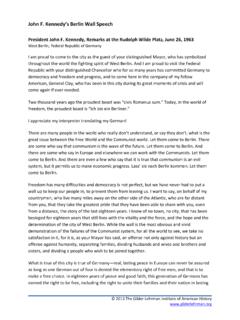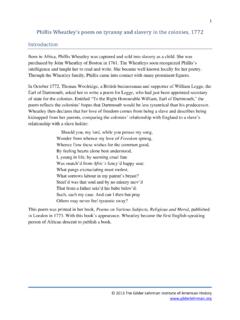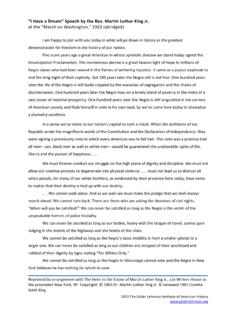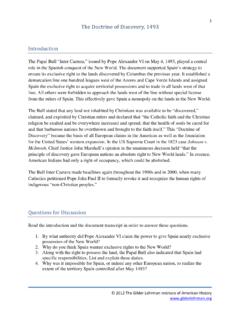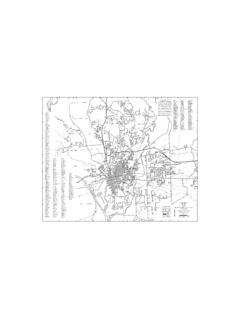Transcription of Letter from Christopher Columbus: A Common Core Unit from ...
1 Letter from Christopher columbus : A Common Core Unit from the Gilder lehrman institute of american history Epistola Christofori Colom .. de insulis Indie supra Gangem, March 14, 1493. Published in Rome, April 1493. A Letter addressed to the noble Lord Raphael Sanchez, Treasurer to their most invincible Majesties, Ferdinand and Isabella, King and Queen of Spain, by Christopher columbus , to whom our age is greatly indebted, treating of the islands of India recently discovered beyond the Ganges, to explore which he had been sent eight months before under the auspices and at the expense of their said Majesties. Knowing that it will afford you pleasure to learn that I have brought my undertaking to a successful termination, I have decided upon writing you this Letter to acquaint you with all the events which have occurred in my voyage, and the discoveries which have resulted from it.
2 Thirty-three days after my departure from Cadiz I reached the Indian sea, where I discovered many islands, thickly peopled, of which I took possession without resistance in the name of our most illustrious Monarch, by public proclamation and with unfurled banners. To the first of these islands, which is called by the Indians Guanahani, I gave the name of the blessed Saviour (San Salvador), relying upon whose protection I had reached this as well as the other islands to each of these I also gave a name, ordering that one should be called Santa Maria de la Concepcion, another Fernandina, the third Isabella, the fourth Juana, and so with all the rest respectively. As soon as we arrived at that, which as I have said was named Juana, I proceeded along its coast a short distance westward, and found it to be so large and apparently without termination, that I could not supposed it to be an island, but the continental province of Cathay.
3 Seeing, however, no towns or populous places on the sea coast, but only a few detached houses and cottages, with whose inhabitants I was unable to communicate, because they fled as soon as they saw us, I went further on, thinking that in my progress I should certainly find some city or village. At length, after proceeding a great way and finding that nothing new presented itself, and that the line of coast was leading us northwards (which I wished to avoid, because it was winter, and it was my intention to move southwards; and because moreover the winds were contrary), I resolved not to attempt any further progress, but rather to turn back and retrace my course to a certain bay that I had observed, and from which I afterwards dispatched two of our men to ascertain whether there 2 2013 The Gilder lehrman institute of american history were a king or any cities in that province.
4 These men reconnoitered the country for three days, and found a most numerous population, and great numbers of houses, though small, and built without any regard to order: with which information they returned to us. In the mean time I had learned from some Indians whom I had seized, that that country was certainly an island: and therefore I sailed towards the east, coasting to the distance of three hundred and twenty-two miles, which brought us to the extremity of it; from this point I saw lying eastwards another island, fifty-four miles distant from Juana, to which I gave the name of Espa ola: I went thither, and steered my course eastward as I had done at Juana, even to the distance of five hundred and sixty-four miles along the north coast.
5 This said island of Juana is exceedingly fertile, as indeed are all the others; it is surrounded with many bays, spacious, very secure, and surpassing any that I have ever seen; numerous large and healthful rivers intersect it, and it also contains many very lofty mountains. All these islands are very beautiful, and distinguished by a diversity of scenery; they are filled with a great variety of trees of immense height, and which I believe to retain the foliate in all seasons; for when I saw them they were as verdant and luxuriant as they usually are in Spain in the month of May, some of them were blossoming, some bearing fruit, and all flourishing in the greatest perfection, according to their respective states of growth, and the nature and quality of each: yet the islands are not so thickly wooded as to be impassable.
6 The nightingale and various birds were singing in countless numbers, and that in November, the month in which I arrived there. There are besides in the same island of Juana seven or eight kinds of palm trees, which, like all the other trees, herbs, and fruits, considerably surpass ours in height and beauty. The pines also are very handsome, and there are very extensive fields and meadows, a variety of birds, different kinds of honey, and many sorts of metals, but no iron. In that island also which I have before said we name Espa ola, there are mountains of very great size and beauty, vast plains, groves, and very fruitful fields, admirably adapted for tillage, pasture, and habitation. The convenience and excellence of the harbours in this island, and the abundance of the rivers, so indispensable to the health of man, surpass anything that would be believed by one who had not seen it.
7 The trees, herbage, and fruits of Espa ola are very different from those of Juana, and moreover it abounds in various kinds of spices, gold, and other metals. The inhabitants of both sexes in this island, and in all the others which I have seen, or of which I have received information, go always naked as they were born, with the exception of some of the 3 2013 The Gilder lehrman institute of american history women, who use the covering of a leaf, or small bough, or an apron of cotton which they prepare for that purpose. None of them, as I have already said, are possessed of any iron, neither have they weapons, being unacquainted with, and indeed incompetent to use them, not from any deformity of body (for they are well-formed), but because they are timid and full of fear.
8 They carry however in lieu of arms, canes dried in the sun, on the ends of which they fix heads of dried wood sharpened to a point, and even these they dare not use habitually; for it has often occurred when I have sent two or three of my men to any of the villages to speak with the natives, that they have come out in a disorderly troop, and have fled in such haste at the approach of our men, that the fathers forsook their children and the children their fathers. This timidity did not arise from any loss or injury that they had received from us; for, on the contrary, I gave to all I approached whatever articles I had about me, such as cloth and many other things, taking nothing of theirs in return: but they are naturally timid and fearful.
9 As soon however as they see that they are safe, and have laid aside all fear, they are very simple and honest, and exceedingly liberal with all they have; none of them refusing any thing he may possess when he is asked for it, but on the contrary inviting us to ask them. They exhibit great love towards all others in preference to themselves: they also give objects of great value for trifles, and content themselves with very little or nothing in return. I however forbad that these trifles and articles of no value (such as pieces of dishes, plates, and glass, keys, and leather straps) should be given to them, although if they could obtain them, they imagined themselves to be possessed of the most beautiful trinkets in the world.
10 It even happened that a sailor received for a leather strap as much gold as was worth three golden nobles, and for things of more trifling value offered by our men, especially newly coined blancas, or any gold coins, the Indians would give whatever the seller required; as, for instance, an ounce and a half or two ounces of gold, or thirty or forty pounds of cotton, with which commodity they were already acquainted. Thus they bartered, like idiots, cotton and gold for fragments of bows, glasses, bottles, and jars; which I forbad as being unjust, and myself gave them many beautiful and acceptable articles which I had brought with me, taking nothing from them in return; I did this in order that I might the more easily conciliate them, that they might be led to become Christians, and be inclined to entertain a regard for the King and Queen, our Princes and all Spaniards, and that I might induce them to take an interest in seeking out, and collecting, and delivering to us such things as they possessed in abundance, 4 2013 The Gilder lehrman institute of american history but which we greatly needed.
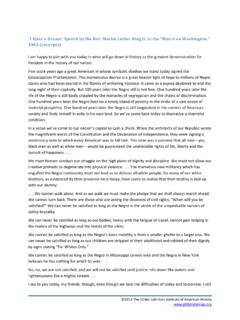
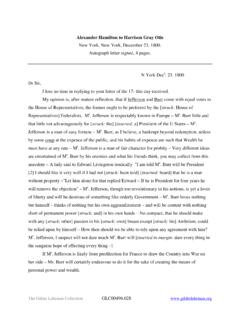
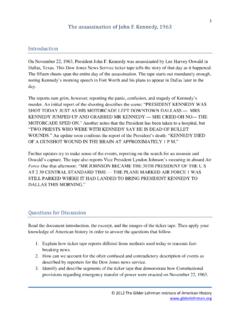
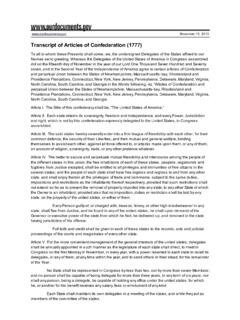
![Articles of Confederation [first printing, first edition]](/cache/preview/1/d/5/8/3/e/2/a/thumb-1d583e2a95e93f880e7d53ec1bb21484.jpg)
